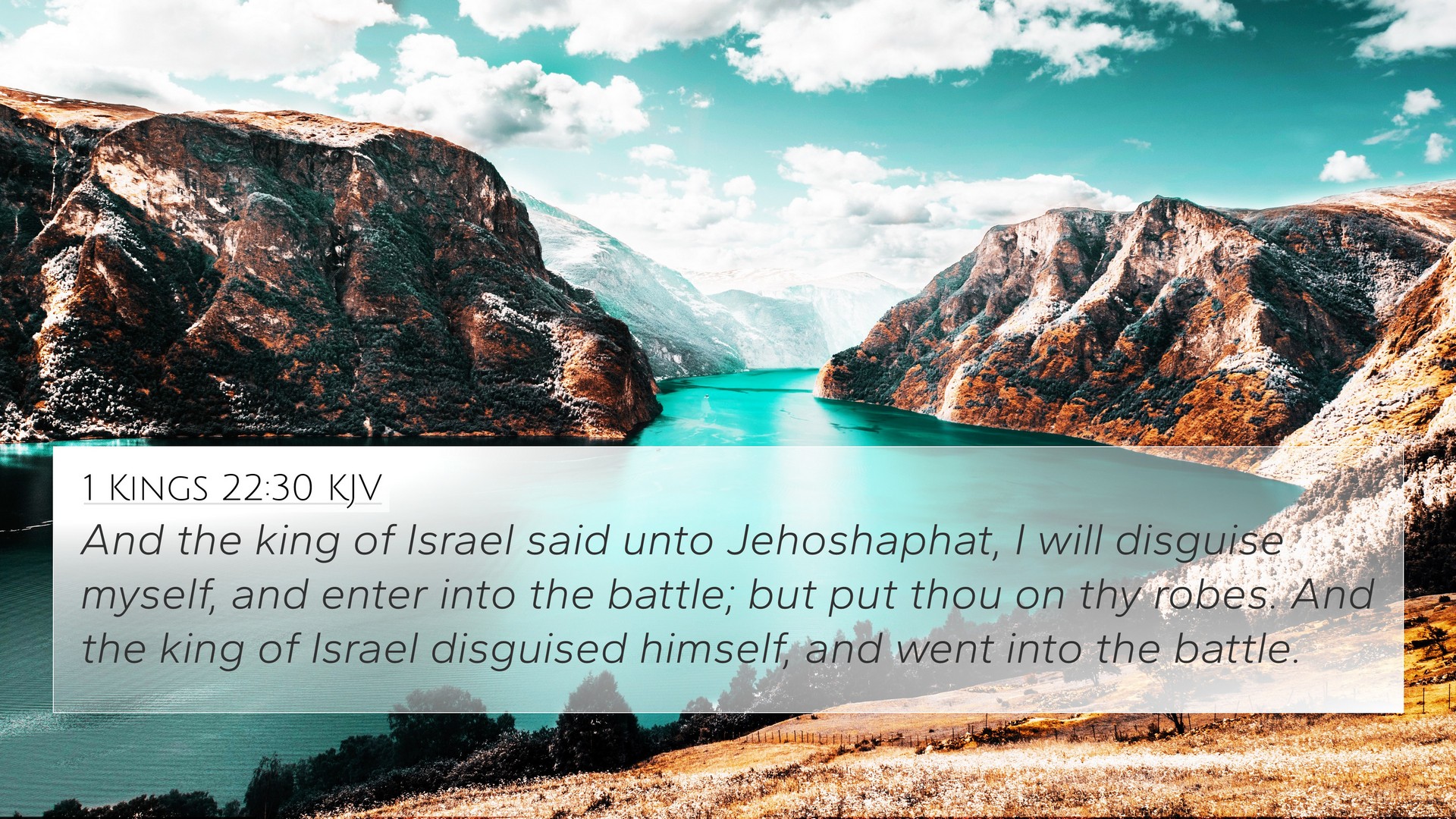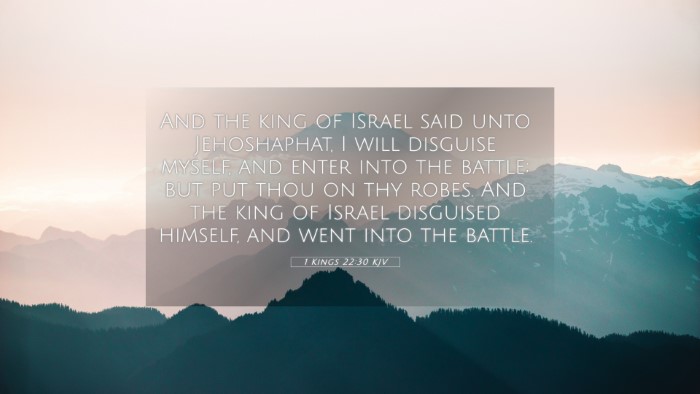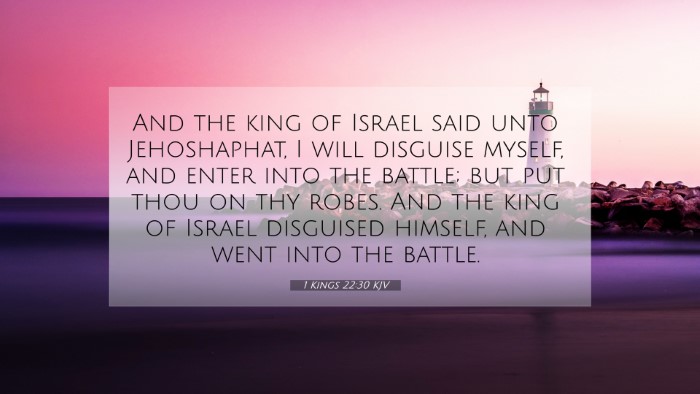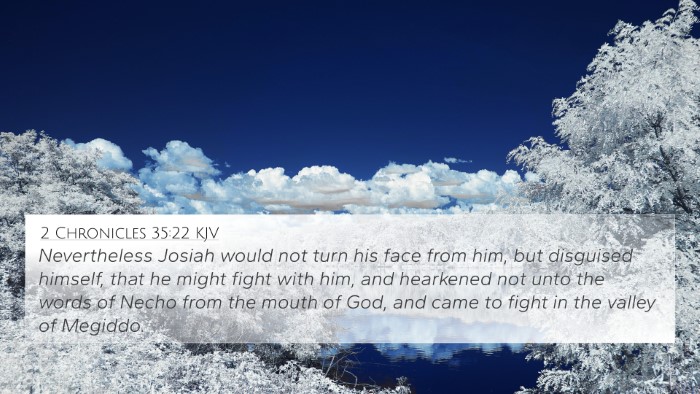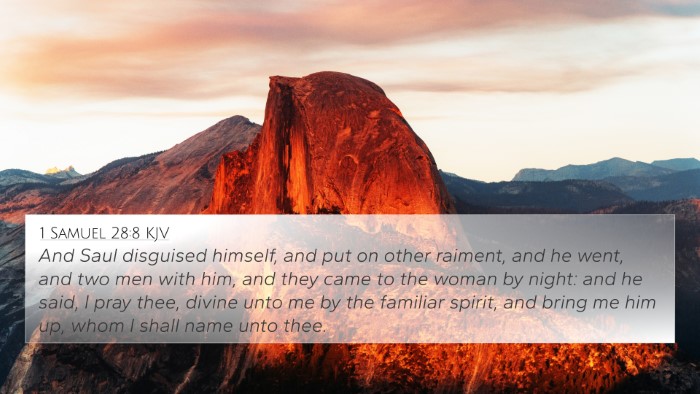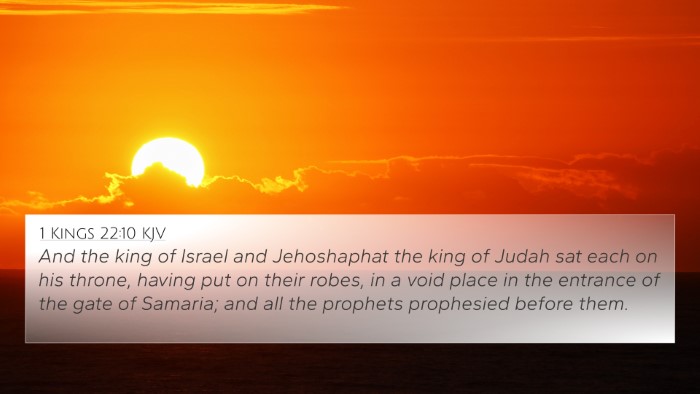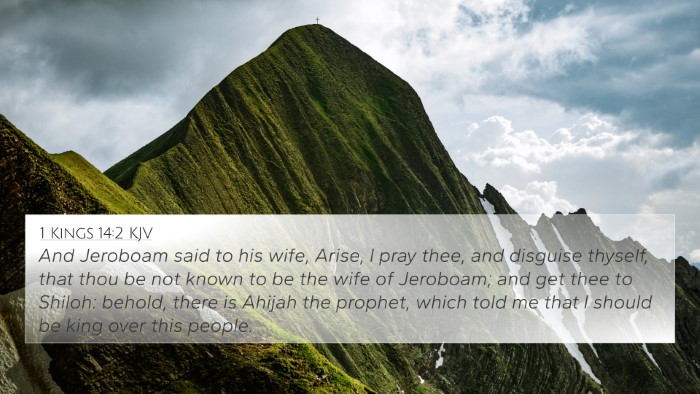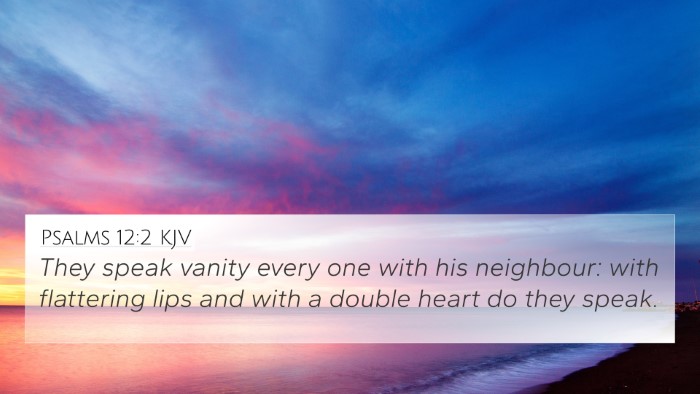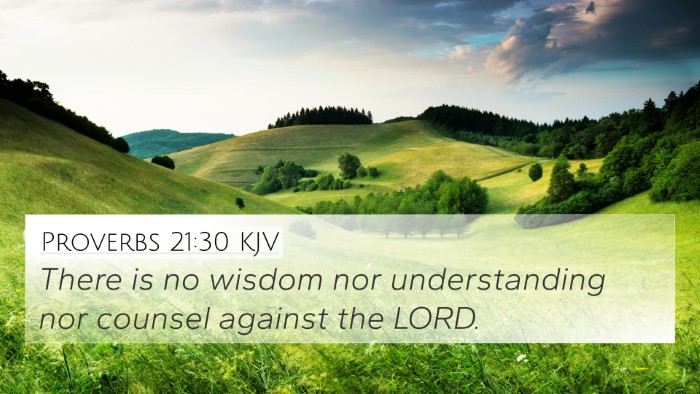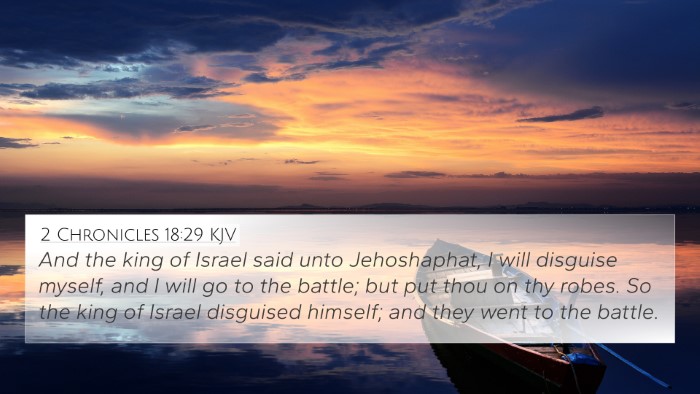Understanding 1 Kings 22:30
In 1 Kings 22:30, we witness a pivotal moment in the narrative of King Ahab's final days. The verse reads:
"And the king said unto Jehoshaphat, I will disguise myself, and enter into the battle; but put thou on thy robes. And the king of Israel disguised himself, and went into the battle." (1 Kings 22:30, KJV)
This verse is rich with meaning and has been the subject of various interpretations by esteemed commentators such as Matthew Henry, Albert Barnes, and Adam Clarke. Below we summarize their insights.
Commentary Insights
-
Matthew Henry:
Henry notes that Ahab's decision to disguise himself reflects his lack of faith and reliance on deception rather than divine guidance. By encouraging Jehoshaphat to wear royal robes, Ahab sought to protect himself while placing Jehoshaphat at greater risk. This highlights Ahab's selfishness and desperation as he faced judgment for his actions.
-
Albert Barnes:
Barnes emphasizes the irony of Ahab’s disguise. Despite his efforts to conceal his identity, the providence of God still holds sway, demonstrating that one cannot escape divine will. Ahab’s actions were emblematic of a leader's failure to uphold righteousness, ultimately leading to his downfall.
-
Adam Clarke:
Clarke points out the deeper implications of Ahab's conduct. The king's disguising himself signifies a moral corruption within his leadership. By attempting to divert attention away from himself, Ahab not only endangers Jehoshaphat but also showcases his inherent cowardice, unwilling to face the inevitable consequences of his choices.
Thematic Connections
This verse connects to broader themes in scripture regarding leadership, faith, and divine justice. Ahab's actions are echoed in various parts of the Bible, underscoring the narrative of a ruler who forsakes truth. Below are related Bible verses that provide further insights and parallels:
- 1 Kings 20:42: "Thus saith the LORD, Because thou hast let go out of thy hand a man whom I appointed to utter destruction, therefore thy life shall go for his life, and thy people for his people."
- 2 Chronicles 18:30: "And the king of Israel said unto Jehoshaphat, I will disguise myself, and go to battle; but put thou on thy robes. So the king of Israel disguised himself, and they went to battle."
- Jeremiah 17:9: "The heart is deceitful above all things, and desperately wicked: who can know it?"
- Proverbs 21:30: "There is no wisdom nor understanding nor counsel against the LORD."
- Psalm 37:35-36: "I have seen the wicked in great power, and spreading himself like a green bay tree. Yet he passed away, and lo, he was not: yea, I sought him, but he could not be found."
- Galatians 6:7: "Be not deceived; God is not mocked: for whatsoever a man soweth, that shall he also reap."
- 1 Peter 3:12: "For the eyes of the Lord are over the righteous, and his ears are open unto their prayers: but the face of the Lord is against them that do evil."
Inter-Biblical Dialogue
The narrative of King Ahab in 1 Kings 22:30 serves as an excellent example of how the Bible interconnects various themes, emphasizing the inevitability of divine authority and human folly. Through cross-referencing biblical texts, we see how the stories of leaders embody profound lessons about accountability, virtue, and the ultimate sovereignty of God.
Cross-Referencing Biblical Texts
Using tools for Bible cross-referencing such as a Bible concordance or a Bible cross-reference guide can illuminate connections between this verse and others. For example:
- Exploring Isaiah 10:1-2 regarding unjust leadership can deepen understanding of Ahab's role.
- Examining Matthew 23:4 demonstrates Jesus’ critique of leaders who burden others while avoiding accountability.
- Investigating Luke 12:2-3 reminds readers that hidden sins will eventually be exposed.
Understanding Ahab's Legacy
Ultimately, Ahab's story teaches valuable lessons on the dangers of manipulation and the consequences of abandoning faith. Reflecting on Ahab's choices allows modern readers to understand the importance of genuine leadership that aligns with God's principles.
Conclusion
Through an in-depth examination of 1 Kings 22:30, and by linking this verse with others through a comparative Bible verse analysis, we gain a fuller picture of the themes of righteousness and divine judgment. The connections between Bible verses found in this verse are essential for a comprehensive understanding of biblical teaching, highlighting the necessity of faith, accountability, and the overarching narrative of scripture.
For anyone seeking to study and understand the Bible more deeply, utilizing cross-referencing methods can reveal intricate themes that bind the text, illustrating the timeless relevance of God's word.
